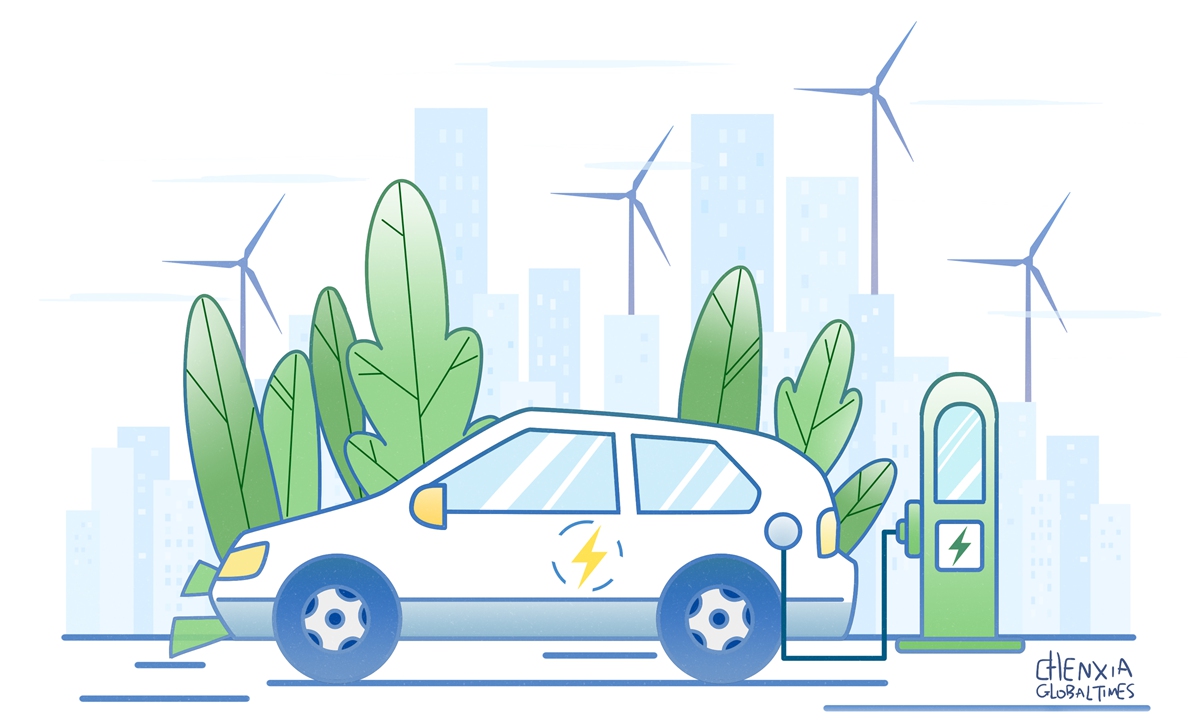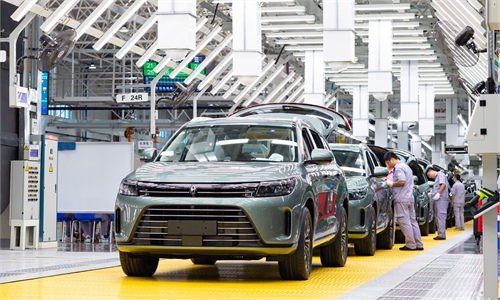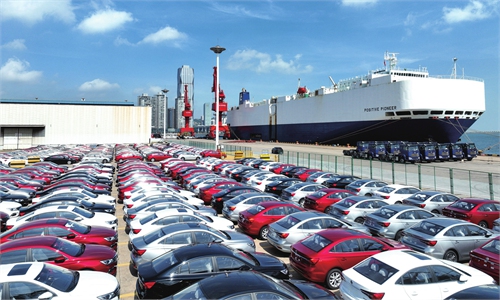
Illustration: Chen Xia/Global Times
In the absence of any evidence, politicians in the US and UK have again generalized the concept of national security, and this time their target is China's electric vehicle (EV) and autonomous vehicle (AV) sectors. Such groundless accusations are merely an excuse for the US-led West to suppress Chinese manufacturers.Ministers in the UK have warned that imported Chinese electric cars "will enable Beijing to spy on British citizens," the Telegraph reported on Saturday. Not long ago, US Transportation Secretary Pete Buttigieg was quoted as saying that his agency has national security concerns about Chinese AV companies being in the US, after some lawmakers called for restrictions on their operations.
It's the US' old trick of hyping so-called security threats to suppress Chinese companies. Now, observers are worried about whether EVs and AVs will become a new front for the US to exert pressure on Chinese companies.
Buttigieg said in an interview with Reuters that "whether we are talking about hardware or software, in the same way there are concerns around telecom or TikTok, there are concerns around transportation technologies." A commonality among telecom, short video and transportation technologies is that China's fast-growing companies in those areas are becoming increasingly competitive, and their rise has triggered a sense of crisis among US elites.
If the US cannot win economic competition through normal means, using national security as a blanket excuse to crack down on competitors is a convenient and simple way to maintain US economic hegemony and help American companies gain an unfair competitive advantage.
Chinese EV companies have grown rapidly in recent years, becoming major competitors for American automakers like Tesla. In July, China's BYD extended its lead over Tesla in China-made EV sales, as customers snapped up BYD's lower-priced EVs and its US rival idled some production to prepare for a revamped Model 3 launch, Reuters reported.
After achieving success in the domestic market, some Chinese EV producers have begun to compete with global brands in their home markets. Clearly, the US is concerned that Chinese companies will win, so some American politicians are resorting to the old trick of citing national security to suppress Chinese companies. This is part of the US' efforts to contain China's economic rise.
In recent years, the US has been pushing its allies to prevent the use of technology from China's Huawei and ZTE in their 5G wireless systems.
Will similar stories continue to unfold? We hope the answer is no, otherwise people in these countries will suffer losses when their policymakers reject high-quality and affordable Chinese cars.
The South China Morning Post said in a report in June that China's EV exports are expected to almost double this year, helping the nation overtake Japan as the biggest car exporter worldwide as US rivals like Ford experience competitive struggles.
China's EV shipments are expected to reach 1.3 million units in 2023, versus 679,000 in 2022 as reported by the China Association of Automobile Manufacturers. Chinese EV brands won't be defeated as the nation's comprehensive competitive power offers it room to confront difficulties. Nonetheless, China's EV exports will face increasing challenges.
Frankly speaking, Chinese companies have to learn how to cope with the pressure from the US government in the process of becoming world-class players. The West's crackdown on Chinese EVs and AVs may escalate. Chinese companies should prepare for the worst so that whatever happens, they are not in a passive position.
The author is a reporter with the Global Times. Bizopinion@globaltimes.com.cn



